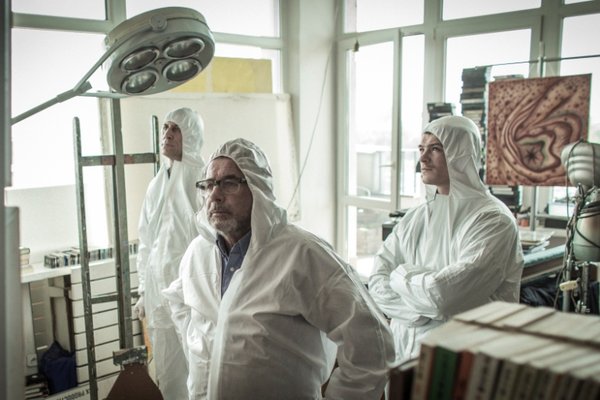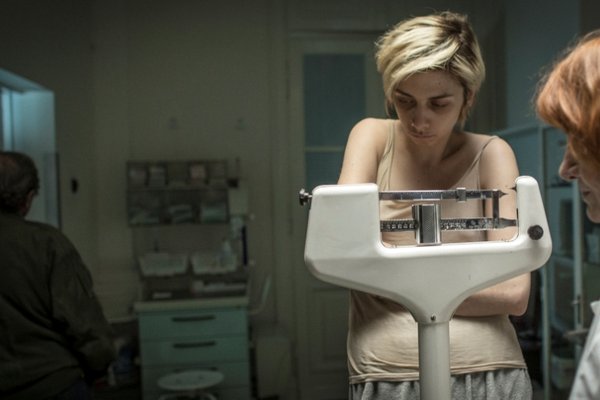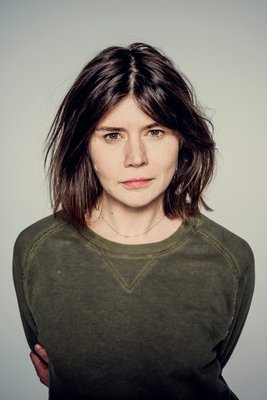New golden era of Polish cinema
On 14 February, Małgorzata Szumowska’s Body received a Silver Bear award at the Berlinale 2015, one of the world’s most prestigious film festivals. It is not the only major international prize that Polish filmmakers have won over the last months.
Awarded at the 65th International Film Festival in Berlin, Body is Szumowska’s second film that has qualified for the festival’s main competition. Two years ago, her previous picture In the Name of… was also a contender for the top prize.
Body, which enters Polish cinemas on 6 March, focuses on people’s relations with their bodies. The protagonists are a prosecutor who deals with corpses as part of his daily duties (in this role Janusz Gajos, a distinguished Polish actor), his bulimic daughter and the girl’s psychoanalyst, who tries to communicate with ghosts –astral bodies.
 According to many film critics, that picture is Szumowska’s biggest achievement so far. “Szumowska has a unique capacity to reveal the uncertainty and weakness of the apparently obvious things. Her film is an ironic insight into life’s paradoxes and behaviours of people who have to face the mystery of death,” concludes Janusz Wróblewski in his review on the Polityka.pl website.
According to many film critics, that picture is Szumowska’s biggest achievement so far. “Szumowska has a unique capacity to reveal the uncertainty and weakness of the apparently obvious things. Her film is an ironic insight into life’s paradoxes and behaviours of people who have to face the mystery of death,” concludes Janusz Wróblewski in his review on the Polityka.pl website.
The film abounds in references to the Polish cinema classics, particularly the works of Krzysztof Kieślowski, who received the Silver Bear Best Director award for his film Three Colours: White in 1994.
Poland has waited for success in the Berlinale official competition for several years. So far, the Silver Bears have gone to the directors Roman Polański, Janusz Zaorski, Jerzy Kawalerowicz, and Andrzej Wajda, who was also awarded an Honorary Golden Bear for Lifetime Achievement.

Małgorzata Szumowska directed Body in 2014, which turned out to be a golden year for Polish cinema. Two other Polish movies, Ida and the Gods (Bogowie), received acclaim from both film critics and audiences.
Paweł Pawlikowski’s Ida has already scooped over 100 awards at Polish and international film festivals and has won equal critical acclaim. The list includes the most prestigious prizes, such as the Goya, a Spanish equivalent of the Oscar, and BAFTA—British Academy of Film and Television Arts award. In addition, this best European film of 2014 has won two Oscar nominations—in the Best Foreign Language Film category and in the Best Cinematography category, for Łukasz Żal and Ryszard Lenczewski.
Polish cinema is also successful at home, with the increasing audiences coming to watch domestic productions. In 2014, the number of Poles who went to the cinema was at its highest in 25 years. Almost 11 million cinema viewers, roughly a fourth of the total audience, watched Polish films, according to the data presented by Boxoffice.pl in February.
The Gods (Bogowie), directed by Łukasz Palkowski, was the most popular Polish motion picture in 2014. The film recounts the life story of Zbigniew Religa, a distinguished cardio surgeon. Since its premiere on 10 October 2014, the movie has attracted an audience of over 2 million. The Gods has received a Golden Lion award for the best picture at the 39th Gdynia Film Festival and the prestigious Project London prize for its international potential. “You wouldn’t think a film about cardiology in Poland would be such a kick,” wrote the Guardian.
AGATA NOWICKA

Małgorzata Szumowska
Director and screenwriter of feature and documentary films. She graduated from the Leon Schiller National Higher School of Film, Television and Theatre in Lodz in 1998. In 2001, she joined the European Film Academy. She is a laureate of many international and Polish film festivals. Her film etude Silence (Cisza) is among the fourteen best films in the history of the film school in Lodz and her screenplay for It (Ono) is among the three European texts awarded in the Robert Redford’s Sundance Institute competition. At the Locarno festival, her film 33 Scenes from Life received a Golden Leopard special prize. The film has also received four Eagles, the Polish Film Academy awards.
14.02.2015


